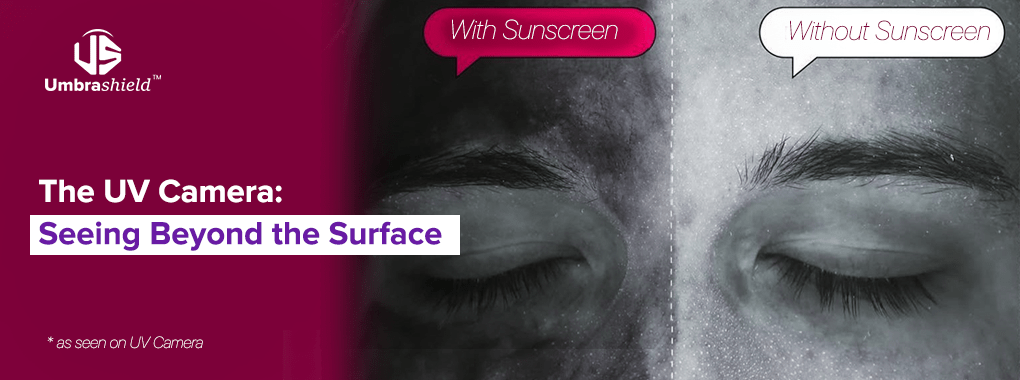
The UV Camera: Seeing Beyond the Surface
Share
Introduction – Seeing Beyond the Visible Spectrum
Most of us trust our eyes to show us the world as it is. But what if there was more to see—details hidden beyond the visible spectrum? That’s exactly what a UV camera does. It captures ultraviolet light, revealing patterns, damage, and features that our eyes alone can’t detect.
What is a UV Camera?
A UV camera is a specialized imaging device designed to capture ultraviolet (UV) light, which falls outside the visible spectrum of human vision. Unlike standard cameras that capture colors between red and violet, a UV camera detects shorter UV wavelengths, exposing details that remain invisible to the naked eye.
In simple terms, these cameras allow us to see beyond the surface. Whether it’s assessing skin damage, detecting hidden substances, or improving industrial quality control, UV cameras offer a deeper layer of insight.
What is a UV Camera Used For?
UV cameras are widely used across various industries, including:
-
Skincare & Dermatology – To detect sun damage and skin conditions.
-
Forensics – To uncover hidden evidence like fingerprints and altered documents.
-
Industrial Quality Control – To identify material defects and contamination.
- Scientific Research – To study chemical compositions and biological specimens.
How Does a UV Camera Works?
UV camera works by using sensors that can detect ultraviolet radiation. Since most regular camera lenses block UV light, specialized filters and materials are used to allow these wavelengths to pass through.
The camera then translates this information into an image that reveals textures, chemical compositions, and hidden elements that would remain unseen in normal lighting.
Testing the Effectiveness of Different Sunscreens with a UV Camera
If you’ve ever asked, “Is my sunscreen actually working?”, a UV camera is the best way to find out.
Sunscreen Test Results (Using a UV Camera):
| Sunscreen Type | UV Camera Appearance | Effectiveness |
|---|---|---|
| Mineral Sunscreen (Zinc Oxide) | Dark black coverage | ✅ Best protection |
| Chemical Sunscreen | Some light patches | ⚠️ Partial UV protection |
| Spray Sunscreen | Uneven coverage | ❌ Risk of missed spots |
| No Sunscreen | Fully visible skin | ❌ No protection |
📝 Key Takeaway: If you want full UV protection, go for mineral sunscreen with zinc oxide and apply it evenly.
What Is UV Vision Used for and How Does It Help?
UV vision is used for various applications where the human eye falls short. For instance:
-
In Skincare, UV vision helps dermatologists analyze skin conditions and sun damage.
-
In Crime Investigation, forensic experts use UV cameras to detect blood stains, fingerprints, and fraudulent documents.
- In Manufacturing, UV vision detects surface defects and contamination invisible under regular light.
UV vision lets us visualize what’s normally invisible—skin issues, product residues, biological samples, and material flaws.
A UV camera with a UV spectrum sensor picks up these signals, making it invaluable for:
Whether you’re heading to the beach or on a trek, your UV Smart Mirror can be your SPF camera at home, ensuring every inch of your skin is protected before you step outside.
The UV Camera’s Role in Skin Protection
UV Camera Test & Sun Damage Detection
One of the most popular applications of UV cameras is in skin analysis. A UV camera test can reveal:
-
Early signs of sun damage before they become visible.
-
Pigmentation irregularities that indicate skin conditions.
- Effectiveness of sunscreens and skincare products.
Does UV Light Show Skin Damage?
Yes, UV light can highlight existing skin damage that may not be visible to the naked eye. Sun exposure leaves behind invisible marks that UV imaging can detect.
Regular UV skin analysis helps in early prevention and better skincare choices.
Beyond Beauty: A Tool for Change
UV cameras are not just about skin and science; they are also about awareness and education. They:
-
Help people understand the impact of UV exposure.
-
Assist dermatologists in creating better skincare solutions.
- Improve safety standards in industrial applications.
The Future of Awareness: Look Deeper, Live Smarter
As technology advances, UV camera will become even more powerful. Future developments may include:
-
Wearable UV sensors to track real-time sun exposure.
-
Compact and affordable UV cameras for personal use.
- Wider adoption in beauty professional for personalized skincare treatments.
Conclusion – How UV Cameras Are Transforming Various Fields
The UV camera is more than just a tool—it’s a window into the unseen. Whether it’s detecting skin damage, solving crimes, or improving industrial processes, UV technology is changing the way we see the world.
As awareness grows, more industries and individuals will rely on UV imaging for better health, safety, and innovation.
Key Takeaways:
-
A UV camera detects light beyond the visible spectrum, revealing hidden details.
-
It has applications in skincare, forensics, science, and industrial quality control.
-
A UV camera test can detect sun damage and skin conditions.
- UV vision is revolutionizing how we analyze and understand the world
See What the Human Eye Can’t: Real-World Use Cases of UV Camera Technology
While traditional cameras only capture visible light, UV cameras dive into the ultraviolet spectrum—offering a new perspective on everything from skincare to sunscreen testing, forensic discovery, industrial inspection, and even UV photography.
So, let’s explore how UV imaging cameras are changing our world.
UV Camera for Skincare & Sunscreen Testing
Skincare is no longer guesswork. With a UV camera for skin, dermatologists and individuals alike can visualize:
- Sun damage even before symptoms show.
- Whether sunscreens are applied properly.
- How effective a product is against UV rays.
You can even conduct your own sunscreen camera test at home with devices like the UV Smart Mirror, which uses advanced UV-sensitive camera technology to show you where your sunscreen is working—and where it isn’t.
Whether you're using mineral sunscreen or a spray, a UV sunscreen camera will show coverage variations clearly.
Pro Tip: Want to check SPF coverage? Use a sunscreen UV camera or a UV detector camera that works in real-time with your smartphone or mirror device.
Comparing UV Cameras: What You Need to Know
|
Type |
Best Use Case |
Special Feature |
|
UV Camera for Sunscreen |
Daily SPF checks |
Highlights applied areas |
|
UV Skin Camera |
Skin damage & aging |
Great for dermatologists |
|
Industrial UV Camera |
Material inspection |
Detects micro-cracks |
|
UV Photography Camera |
Creative shots |
Artistic UV photos |
|
UV Detector Camera |
Personal safety |
Monitors sun exposure |
Looking for the best UV camera for skincare? Try the UV Smart Mirror—equipped with a UV camera sensor that works in real-time to protect your face, detect skin changes, and elevate your skincare routine.
Why UV Cameras Are Becoming Essential in Daily Life
UV cameras are evolving quickly—and they’re now more accessible. Whether it’s your first camera UV light tool, or a high-end ultraviolet imaging camera, the goal is the same: see more, live better.
- Use it to see UV light with a camera.
- Check for sunscreen coverage and adjust application.
- Detect UV damage in industrial or personal settings.
- Monitor sun exposure before going outdoors.
The UV Smart Mirror by Umbrashield is the world’s first personal mirror embedded with ultraviolet camera technology—perfect for people who value skincare, fashion, and premium beauty tech.
Final Thought
Next time you apply sunscreen or see a forensic investigation on TV, remember—there’s a whole world of details beyond what the eye can see. Thanks to UV camera, we can now uncover these hidden truths and use them to live smarter and safer.
Frequently Asked Questions (FAQ)
1. Is UV lens good for eyes?
Yes! UV lenses protect your eyes from harmful rays, reducing the risk of cataracts and eye damage.
2. Why does this not work for all sunscreens?
Some chemical sunscreens don’t block all UV light, so they may not appear as dark under a UV camera.
3. Why does sunscreen show up dark on a UV camera?
Because it absorbs or reflects UV rays, preventing them from reaching your skin.
4. What devices is the UV Camera compatible with?
Most UV cameras work with iPhones, Androids, tablets, and DSLR cameras.
5. How can I test my sunscreen with a UV camera?
Apply sunscreen, wait 15 minutes, and check under UV light to see if coverage is even and dark.
6: How does a UV camera sensor work?
A UV camera sensor detects ultraviolet radiation, capturing details invisible to the human eye. These sensors are crucial in dermatology, forensics, and industrial quality control, revealing UV damage, hidden substances, and material defects.
7: What is UV camera technology?
UV camera technology refers to advanced imaging systems that capture ultraviolet light, revealing details invisible to the human eye. It is widely used in skincare analysis, forensic investigations, and industrial quality control to detect hidden substances, sun damage, and material flaws.
8. What is a UV camera and how does it work?
A UV camera captures ultraviolet light, revealing things invisible to the human eye—like sun damage, skin pigmentation, and material flaws.
9. Why does sunscreen show up dark on a UV camera?
Because sunscreen blocks or reflects UV rays, the camera records those areas as dark—meaning you’re protected.
10. What kind of camera sees UV light?
Specialized UV cameras with UV-sensitive sensors or devices like the UV Smart Mirror can visualize UV light effectively.
11. What is UV camera used for in industry?
It detects defects, surface contamination, and material inconsistencies that aren’t visible under normal light.
12. Can I use a UV camera with my phone?
Yes! Many UV cameras and smart devices are compatible with iPhones, Androids, and tablets.
13. Is there a difference between UV and infrared cameras?
Yes. UV cameras detect shorter wavelengths (ultraviolet), while infrared cameras detect heat or long-wavelength radiation.
14. Is the UV Smart Mirror a UV camera?
Yes. It’s a skincare device with built-in UV camera technology, optimized for sunscreen analysis and skin protection awareness.
